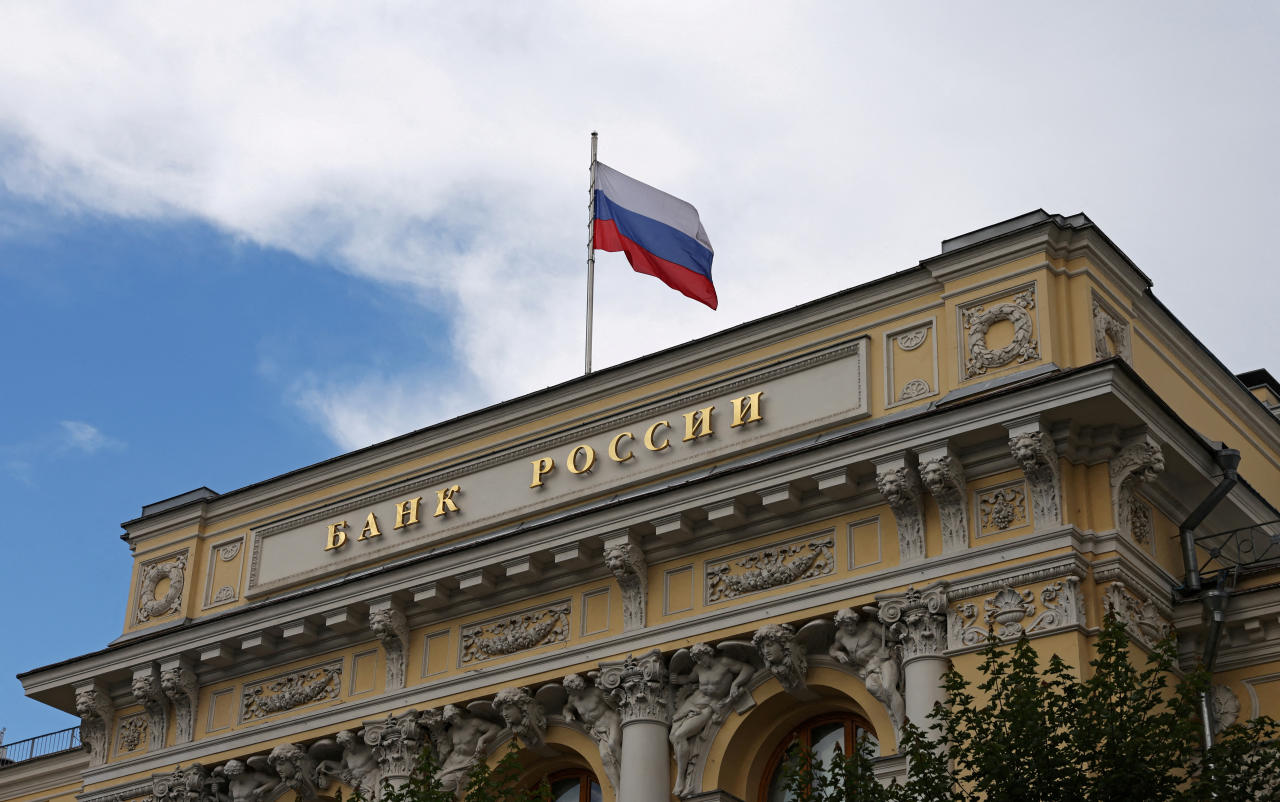World
Russia’s Central Bank Lowers Key Rate Ahead of New Sanctions

In a significant move, the Central Bank of Russia has decided to cut its key interest rate to 12% as the nation prepares for impending sanctions linked to President Vladimir Putin‘s ongoing military actions in Ukraine. This decision comes amid concerns regarding the resilience of the Russian economy, which is already grappling with the effects of previous sanctions.
Economic Context and Implications
The reduction, announced on October 27, 2023, is part of the bank’s strategy to stimulate economic activity in light of a contraction expected to worsen due to the new sanctions. Analysts project that these sanctions, set to be enforced in early November, will further strain the already slowing economy. The bank’s move aims to lower borrowing costs and encourage spending, although it remains uncertain how effective this strategy will be given the dire economic landscape.
According to the International Monetary Fund (IMF), the Russian economy is projected to shrink by approximately 2.3% in 2023, reflecting the cumulative impact of international sanctions and the war in Ukraine. The ongoing conflict continues to disrupt trade relations and create uncertainty in financial markets, leading to diminished investment and consumer confidence.
In its statement, the Central Bank noted that it will monitor the situation closely and is prepared to adjust its policies as needed. The bank emphasized the importance of maintaining financial stability while navigating the complex challenges posed by external pressures.
Global Reactions and Future Outlook
The international community has reacted to Russia’s latest financial adjustments with skepticism. Many experts believe that the impact of the new sanctions could further destabilize the economy, causing inflation to rise and potentially leading to a currency devaluation. The Russian rouble has already faced significant fluctuations, reflecting investor anxiety over the country’s financial outlook.
Domestic consumers are likely to feel the repercussions of these economic choices. Higher prices for goods and services may result from both inflationary pressures and the reduced purchasing power of the rouble. As the government attempts to mitigate these effects, citizens are left to navigate the uncertainties that lie ahead.
In conclusion, the Central Bank of Russia’s decision to lower the key rate is a proactive measure amidst looming sanctions. While the intention is to stimulate the economy, the real challenges lie in the broader context of international relations and the ongoing conflict in Ukraine, which continues to cast a long shadow over Russia’s economic future.
-

 Science4 weeks ago
Science4 weeks agoALMA Discovers Companion Orbiting Giant Red Star π 1 Gruis
-

 Politics2 months ago
Politics2 months agoSEVENTEEN’s Mingyu Faces Backlash Over Alcohol Incident at Concert
-

 Top Stories2 months ago
Top Stories2 months agoNew ‘Star Trek: Voyager’ Game Demo Released, Players Test Limits
-

 World2 months ago
World2 months agoGlobal Air Forces Ranked by Annual Defense Budgets in 2025
-

 World2 months ago
World2 months agoElectrification Challenges Demand Advanced Multiphysics Modeling
-

 World2 months ago
World2 months agoMass Production of F-35 Fighter Jet Drives Down Costs
-

 Business2 months ago
Business2 months agoGold Investment Surge: Top Mutual Funds and ETF Alternatives
-

 Science2 months ago
Science2 months agoTime Crystals Revolutionize Quantum Computing Potential
-

 Top Stories2 months ago
Top Stories2 months agoDirecTV to Launch AI-Driven Ads with User Likenesses in 2026
-

 Entertainment2 months ago
Entertainment2 months agoFreeport Art Gallery Transforms Waste into Creative Masterpieces
-

 Health2 months ago
Health2 months agoGavin Newsom Critiques Trump’s Health and National Guard Plans
-

 Business2 months ago
Business2 months agoUS Government Denies Coal Lease Bid, Impacting Industry Revival Efforts









